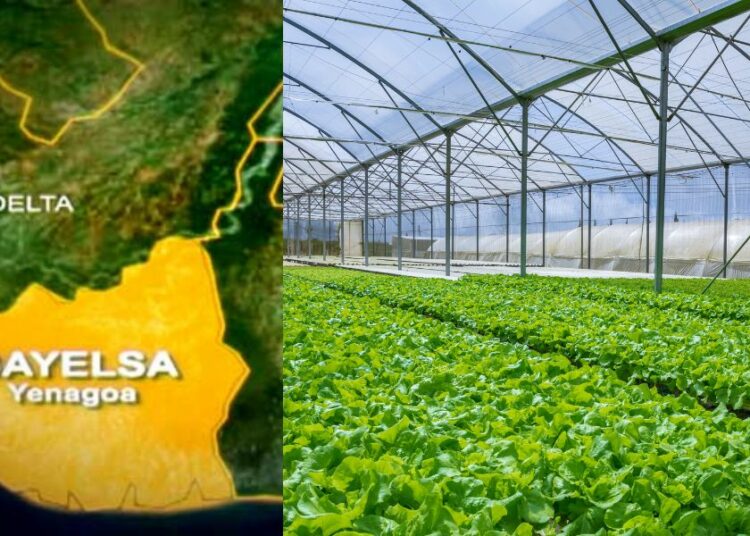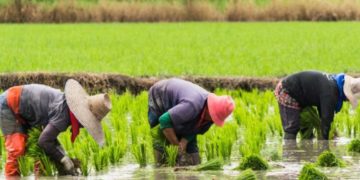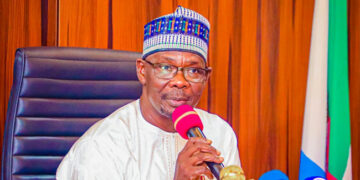In a significant development for youth empowerment and agricultural innovation in Bayelsa State, about seventy-seven young Bayelsans have completed a twelve-week intensive training program in hydroponics, a method of growing plants without soil.
The training, facilitated by the Bayelsa State Ministry of Youth Development under a joint project themed Enterprise for Youth in Agriculture (EYIA), organised by Master Card Foundation in collaboration with Ogun State-based Soilless Farm Lab, aimed to equip these youths with modern farming techniques and, generally, to develop human capital.
According to the Commissioner for Youth Development, Hon. Alfred Kemepado Nimizigha, the goal was to provide training that addresses key questions in relevant areas, adding that the state government aims to design programs that lead to active engagement and practical solutions to food security challenges.
He said, „Training such as this is geared towards addressing the issue of food security when adequately done the way it is done and by God‘s grace when properly established is arguably an end-to-end. By that,
I mean training for employment almost immediately because these are hands-on skills to produce what we have a market for in terms of what they are trained for, specifically in the area of vegetables.
“As a state, we are not even self-sufficient, so we need to see how we can be self-sufficient in that proportion and by that, I mean the amount of Bayelsa resources that go to buy these vegetables are going to be retained here in Bayelsa before we start talking about export to neighbouring states.
“We are a regional government, so this establishment movement does not just rest with the state government. We should also have buy-in from the Federal Ministry of Agriculture and the other related agricultural departments and agencies nationally and internationally.
At the end of the day, when we talk about curbing vices that plague the oil facilities, one way you can address vices like this is to get youths engaged with alternate sources of income and keep them busy.
We have plans of training more youths not just in agriculture, but also in aquaculture, entertainment, sports, entrepreneurial development, and youths that have knowledge that will contribute to issues of environmental remediation and reforestation.“
Some of the trainees who spoke with Leadership after receiving a stipend from the state government expressed their deep commitment to applying these skills in their communities, promoting local food production, and making a career in agriculture.
One of the beneficiaries, Blessing Erewari Joshua, from Oloibiri in the Ogbia local government area, said she gained new skills and valuable experiences and interacted with people from diverse tribes and cultures.
At least I know how to plant bell peppers now. We did soil things, and I can build a greenhouse and a screen house. I learnt a lot and am very grateful to be part of this programme. I got some seedlings to produce, and by January, I am hoping to start my first planting of cucumber and vegetables“, she said.
Another beneficiary, Zibo Ebimoboere Wari, from Akassa in the Brass local government area, said that although the training was stressful, it was a fantastic experience and an excellent place for her to be.
She said, „Agribusiness is very broad; it is not all about the planting; it is about you going there to educate yourself on how to reach out to the world, compose yourself, and manage your finances. I learnt how to speak, make a budget and invest, plan my finances, and create branding for my business.“
Also, Odiodi Wisdom, from the Okori Community in the Ogbia local government area, said he could learn hydroponics, a mechanised farming method for cultivating vegetables without using soil.
I learnt how to cultivate fluted pumpkin, cucumber, tomatoes, lettuce, etc. My experience was very encouraging because I was able to learn more things about agriculture. It was an opportunity for me to learn soilless farming. I hope to reciprocate what I learnt here in Bayelsa State“, he said.





